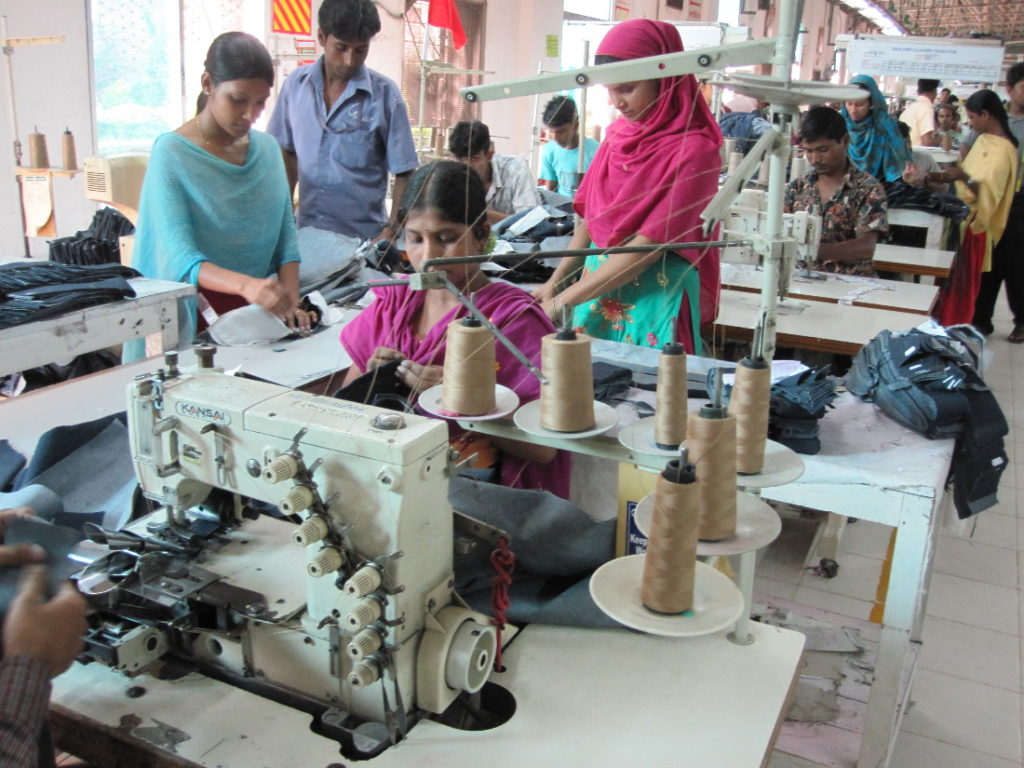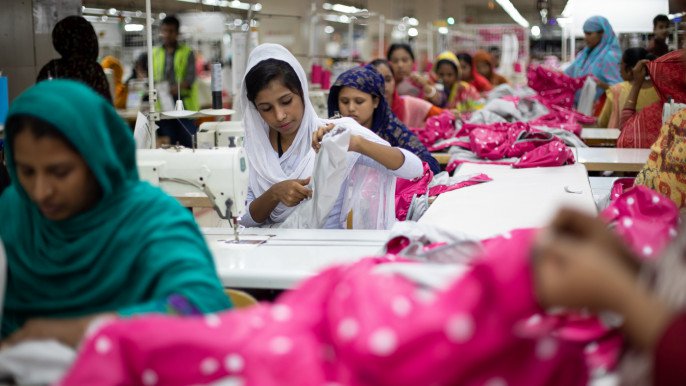Published in New Age on February 21, 2018

Bangladesh Foreign Trade Institute has identified product and market concentration, lower productivity of workers and lack of mid-level professionals as major challenges for the readymade garment business in Bangladesh.
Despite having potentials in Commonwealth of Independent States, Oceania and Latin American countries, high tariff and non-tariff barriers have been hindering the export of RMG to the regions, observed a BFTI study published on Tuesday.
As per the instruction of a taskforce on the RMG sector under the commerce ministry, the BFTI conducted the survey titled ‘Expansion and Facilitation of the RMG sector of Bangladesh’ and presented its summary at a workshop organised by the ministry at the CIRDAP auditorium in the capital.
The study also observed that import dependency of raw materials, lack of infrastructure including road connectivity, inadequate utility services and limited facilities in ports, collateral requirements for bank loans and unjustified price quotes by buyers were challenges for the expansion and facilitation of the RMG sector.
Bangladesh should concentrate on upgradation and move towards high-end products and fast-moving consumer goods could also be targeted for overall product diversification, the BFTI said.
‘New potential markets must be explored for diversification and sustainability of the sector. The potential regions like Oceania, CIS and Latin American countries should be seriously considered for diversification,’ the study recommended.
The report said Bangladesh was lagging far behind its international competitors like India, Vietnam and Sri Lanka in terms of efficient production due to lack of technical manpower and qualified local managers.
‘Efficiency is necessary in each level of value chain, from production to marketing, for making the industry more competitive and sustainable in the global market,’ the report read.
In the CIS region, Russia is the main export destination but Bangladesh faces up to 33.32 per cent duty on its major export item, garments, in the market, study said.
It also observed that non-tariff barriers like labelling requirements, other product characteristics requirements, certification requirements and additional charges were also hindering RMG export of Bangladesh to the CIS region.
Bangladesh RMG export to Australia and New Zealand witnessed a significant increase due to duty-free market access but the export faced high tariff rate in other Oceania countries like 32 per cent in Fiji, 25 per cent in Papua New Guinea and 20 per cent in Samoa, the BFTI study said.
Latin American countries could be the emerging export destinations for Bangladeshi readymade garment products but the imposition of higher rate of duty, 35 per cent by Brazil, 36.38 per cent by Ecuador, 35 per cent by Argentina and 15 per cent by Colombia, hindered the possibility, it said.
The report also identified tariff and non-tariff barriers as the key impediments to increasing Bangladesh’s RMG exports to Middle East.
The BFTI suggested that the government should think seriously of going for bilateral negotiations in order to remove tariff and non-tariff barriers in different countries.
The institute recommended establishing separate zones for the RMG in the special economic zones with adequate infrastructural and utility services and mitigating dependency on external sources for raw materials through cotton farming and increasing production of man-made staple fibres.
The study also emphasised a proper branding strategy saying that improvement of social compliance and labour issues would have a huge positive impact on the overall ‘Made in Bangladesh’ brand.
Commerce minister Tofail Ahmed, while addressing the workshop as chief guest, said that considering the increasing competition in the global business Bangladesh should go for both market and product diversification.
‘Bangladesh’s readymade garment sector is ready to face any global challenges as the sector has already established a strong foundation by setting up world-class factories and ensuring social compliance,’ the minister said.
BFTI chief executive officer Ali Ahmed, commerce secretary Shubhashish Bose, Centre for Policy Dialogue research director Khondaker Golam Moazzem, Bangladesh Institute of Development Studies senior research fellow Nazneen Ahmed, Bangladesh Institute of Labour Studies executive director Sultan Uddin Ahmed and commerce ministry additional secretary Tapan Kanti Ghosh spoke at the programme, among others.
 CPD RMG Study Stitching a better future for Bangladesh
CPD RMG Study Stitching a better future for Bangladesh



